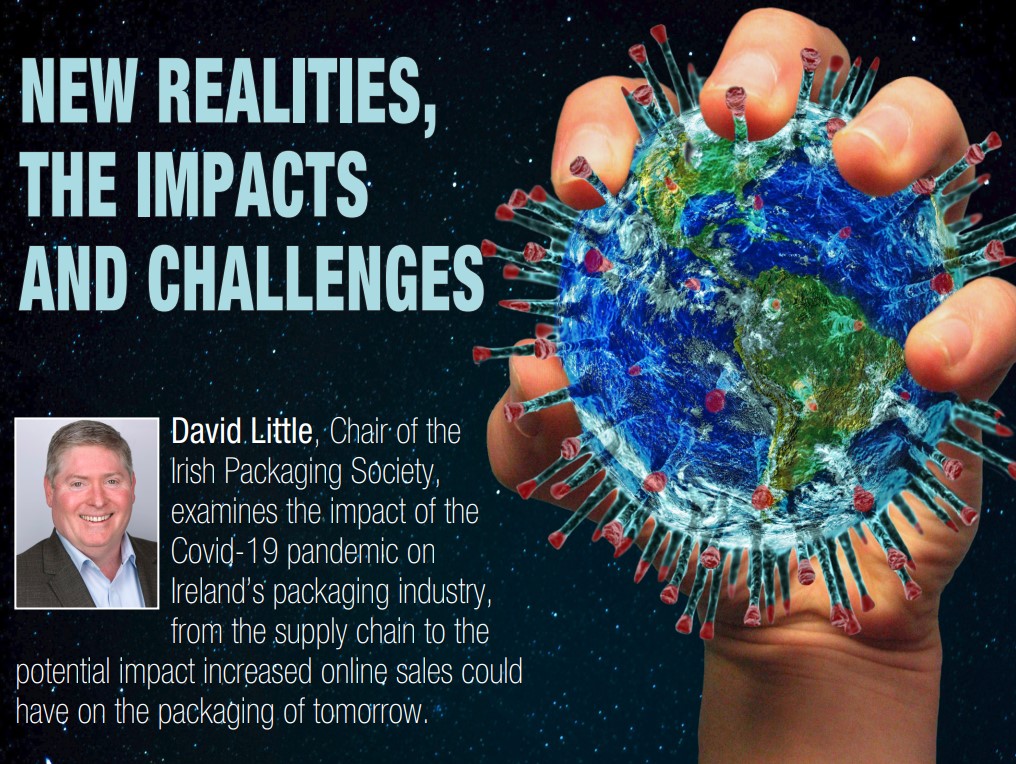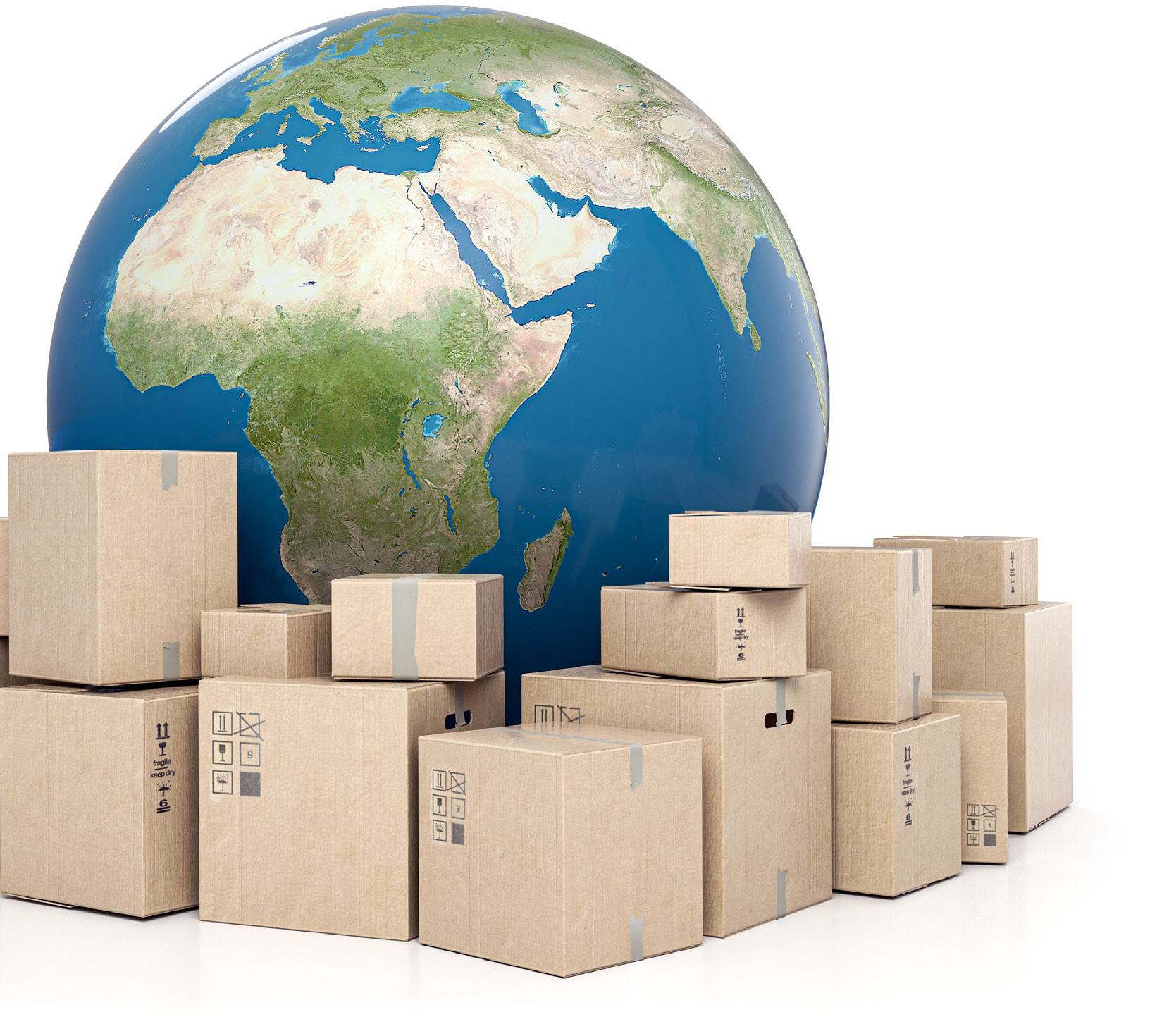
What a strange few months this has been for all of us. A real challenge to how we do business, a harsh judgement on our customer mix and a clear ruling on who and what is really important in our personal and business lives.
For context, I am writing this article at the start of the opening up… the beginning of Phase 2, which will hopefully go well and at least allow the island of Ireland to get back to some level of normality over the next number of months.
It has been a strange time. Some sectors and people have never worked harder, like those great people on the frontline. Many other sectors have had their businesses totally wiped out, at least in the short term. These companies face real challenges to get up and running: bringing in and paying for new stock, getting back their staff and making ends meet, with the impact of social distancing adding cost, or undermining revenue opportunities. While any number of these sectors deserve comment, I am going to look at the general issues and the impacts on the broader packaging sector in this article.
In general, the packaging sector worked well through the Covid crisis, particularly where they supplied food and pharma sectors and therefore qualified for exemptions and were able to continue working, even if with a reduced work force. This, of course, wasn’t without difficulty, as engineering service support and supply chains were affected. Not to mention distancing issues at work and the possibility of being short-staffed with people out sick, ill or in isolation. While some food packaging flexible film and other providers were up a bit, the general result was that most packaging companies although busy were down 20% or more on last year. The benefit of less travel and sales expenses helped to offset things a little, but it has been a very challenging period for all.
For instance, printing ink supply was starting to have issues with the increased usage of ethanol and n-propanol by other sectors. I know of a number of machine installations that were late or on hold due to the inability of engineers to travel or some that have been delivered but stayed wrapped, as they cannot get Chinese engineers and trainers to travel and install. As a result of Covid, many new capital equipment investment programmes are on hold until things become clearer, or are pushed out to next year.
RE-EXAMINING YOUR SUPPLY CHAIN
I think companies should consider where they are sourcing from, as they have now seen the impact of very long supply chains, not to mention the carbon footprint of these supply chains. As Europeans, I think we should support European manufacturers. As things stand, we are passing more and more of our business (commodity and equipment) to Asia. As we have now seen, this comes with risk, and can have a sizeable impact.
Aside from the risk, we need to ask ourselves do we want a Europe that has a weaker and weaker manufacturing sector? Should we endlessly chase the cheapest price? If Europe gets weaker, someone is getting stronger. Do we really want the balance of power to shift further?
The Asian economies are bigger and stronger now than they have ever been and will have their own local markets to supply going forward. Growing prosperity will drive up their prices, but at that point, maybe Europe will be too far gone to start manufacturing competitively again. I know of a company in China that has 38 B1 6 colour Litho printing presses in a row, printing cartons for the export market. I challenge you to find a European company with anything close to this many machines on one site.
I don’t want a European industry of just shipping companies and supply chain warehouses. I think we need to wake up and look at the bigger picture, of future employment, economic growth and supply chain confidence.
WORKING FROM HOME
Working from home was a new challenge. Many liked it. There could be an impact on commercial property in the centre of Dublin, for instance, with companies like Twitter and Facebook saying they will keep it up, to a large extent. Perhaps this will encourage the banks to move away from property, as the ubiquitous quick gain and look to entrepreneurship and manufacturing as the way forward for investment and growth in Ireland.
I think home-working can work well, if you have space at home, but being perched on the couch or sitting at the dining room table for ever more is not ideal. In this recent scenario, it was particularly difficult, with partners and kids also at home, all looking for their own space, WiFi and computer access. In a more normalised scenario of full-time home-working, I believe it would not be easy to build loyalty and team spirit at a distance. If not handled well, it could become a benefit, primarily to the employers (akin to zero-hours contracts), where the employee has increased pressure and workload, with little benefit or sense of belonging.
I heard of a number of stories, where some people found it (save the commute), actually more stressful, with endless numbers of Zoom / Skype / Teams calls, or long meetings, where they were only needed for a small portion of it, leaving them little time for their normal work to be done. To succeed, it does need a well-considered, hand-off approach and will not suit certain management styles and some employees.
THE IMPACT ON RECYCLING
We need to ask ourselves do we want a Europe that has a weaker and weaker manufacturing sector? I don’t want a European industry of just shipping companies and supply chain warehouses. I think we need to wake up and look at the bigger picture, of future employment, economic growth and supply chain confidence.

Corrugated packaging continues to rise in demand, as one of the key packaging substrates, essential for product distribution: outers, SRP’s, displays, trays and of course E-commerce.
As we were all at home and couldn’t go out or eat out, this impacted on the recycling sector in a big way. Normally the vast bulk of their collections are from a small number of large commercial operations (hotel, restaurants, factories etc.), but as a result of Covid, they had the reverse of this, only collecting from households, but with an increased volume and very little on the commercial collection side. You can imagine this completely changed the volume and profile of the waste, adding cost at every stage. An interesting outcome of Covid is that it has highlighted one of the key functions and benefits of packaging, protecting the product. We have now seen many historically loose food items being bagged or wrapped, like fresh breads, pastries, coffee stirrers etc., and will probably see a drive back to portion packs, rather than large size dispensers, when the foodservice sector gets back up and running. Even the encouraged use of reusable coffee cups has been slowed by coffee shops, as they understandably do not wish to handle them. This outcome unfortunately goes against the ethos of reducing unnecessary packaging and may complicate the planned single-use plastics legislation, due next year. It will be interesting to see how this will be handled and if the legislation needs to be changed or postponed.

If large numbers of people are buying their weekly food shopping online, it could start to impact on the design and substrates used in these FMCG product packs.
Supermarkets, brand owners and their suppliers (including packaging companies) have all done a pretty impressive job over this period, taking care of their staff and customers, while trying to handle increased sales, keeping the shelves full and maintaining their supply chain. This has not been easy with the pressures of staff shortages, increased stress levels and all with hit-and-miss raw material supply.
DISPLAY/POS GRAPHICS
The display / POS graphics sector has assisted these retail stores and workplaces, with all sorts of signage, floor graphics, screens and barriers. Just as well, as their traditional area of Point of Sales stands and displays have been hit hard during these times. I imagine we will see fewer of these type of POS marketing campaigns for the next while and those that do happen will be expected to last longer, giving a real challenge to the agencies to build stronger brand stories and to traditional print companies to cope with falling volumes.
Corrugated packaging continues to rise in demand, as one of the key packaging substrates, essential for product distribution: outers, SRP’s, displays, trays and of course E-commerce.

The challenge for Ireland’s packaging industry is to react to this new reality and to see opportunities, to maybe diversify or change our message, or frame it better, to suit our customers and the way they are changing.
THE POTENTIAL AFFECTS OF STRONGER ONLINE SALES
E-tailers like Amazon and Alibaba and of course E-commerce sites have been the big winners from Covid. Speaking to my local postman, he said it was like Christmas volume every day during the crisis. This gives you an idea of the increase and scale of online shopping, for everything from groceries to tins of paint. Courier companies quote a similar story and were barely able to handle volumes, requiring additional staff to handle swamped sorting facilities. This all begs the question: what will people do afterwards? Will they go back to the high street, or do they find online so convenient that the trend will continue? There could be big repercussions to this in terms of employment, retail property, waste collections, packaging volumes, couriers, and even packaging design.
A further shift from the supermarket shelf to online will challenge brand identity. If large numbers of people are buying their weekly food shopping online, it could start to impact on the design and substrates used in these FMCG product packs. While web-sites will continue to show the photo image of the branded product, shape and colour, does the delivered pack still need to represent the brand visually / physically in the traditional way? Could the product pack be plainer, with a basic print or cheaper substrate to suit a new shorter supply chain, or maybe the use of refillable packs could increase for this online business. There could actually be some positive sustainability arguments made in favour of this, but will most people go back to the traditional model and what percentage won’t? This is the big question.
These are going to be interesting times and the sooner we get a vaccine the better. I know many pharma companies and universities are working on it, but apparently without good antibodies being generated in the body, it is very difficult to develop a vaccine.
TRAINING THE PACKAGING TECHNOLOGISTS OF TOMORROW
Speaking of universities, if students can’t return to campus, they too will be faced with difficulties, as a lot of their revenue comes from on-campus sources, such as accommodation, parking, foodservice, etc. They are being challenged to find new ways to deliver content, manage students learning at a distance and find new revenue streams. From my recent experience with online workshops and this year’s Diploma in Packaging Technology, which moved partially online, teaching and marking papers from open-book exams is different and takes a little getting used to, but is possible.
We have all been challenged to react to this new reality and to see opportunities, to maybe diversify or change our message, or frame it better, to suit our customers and the way they are changing.
Good luck. Stay safe.
You might also find interesting:

